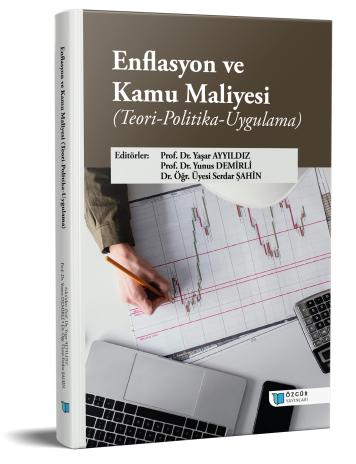
Türkiye’de Enflasyonun Reel Vergi Gelirleri Üzerindeki Etkisi
Şu kitabın bölümü:
Ayyıldız,
Y.
&
Demirli,
Y.
&
Şahin,
S.
(eds.)
2024.
Enflasyon ve Kamu Maliyesi (Teori-Politika-Uygulama).
Özet
Bu çalışmada Türkiye ekonomisinde enflasyonun reel vergi gelirleri üzerindeki etkisinin analiz edilmesi amaçlanmaktadır. Enflasyon, fiyatlar genel düzeyindeki artışlarla birlikte nominal vergi gelirlerini artırırken; reel vergi gelirlerinde erozyona yol açabilmektedir. Özellikle dolaylı vergilerin enflasyona duyarlılığı nedeniyle nominal vergi gelirlerinde artış gözlemlenmektedir. Ancak bu artış, tahsilat süreçlerinde yaşanan gecikmeler ve enflasyonun aşındırıcı etkisi nedeniyle reel gelirlerde benzer bir artış yaratmamaktadır. Çalışma, enflasyonun vergi gelirleri üzerindeki etkisini düşük, orta ve yüksek enflasyon rejimleri altında incelemektedir. Bunun için Ayrık Eşik Regresyon modeli kullanmakta olup, analizler 2006Q1-2024Q1 dönemini kapsamaktadır. Elde edilen sonuçlar, enflasyonun düşük seviyelerde negatif, yüksek seviyelerde ise pozitif etkisi olduğunu göstermektedir. Bu durumun enflasyon vergisi kaynaklı olabileceği düşünülmektedir. Ayrıca, yüksek enflasyon döneminde ekonomik büyümenin pozitif etkisinin gelir adaletsizliği ve para arzının negatif etkisinin ise kayıt dışı ekonomi çerçevesinde daha detaylı incelenmesi gerektiğine inanılmaktadır. Sonuç olarak, enflasyonun etkilerini en aza indirmek ve kamu finansmanının sürdürülebilirliğini sağlamayacak makroekonomik politikaların uygulanması ve vergi sisteminin etkinliğini arttıracak değişikliklerin yapılması önermektedir.

